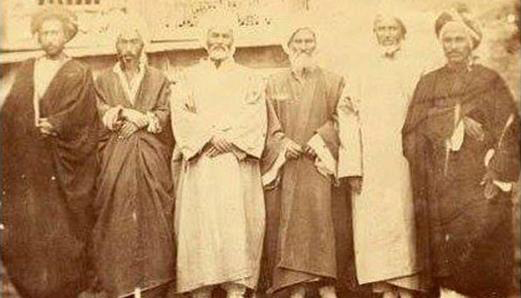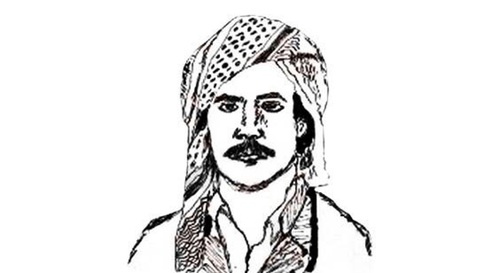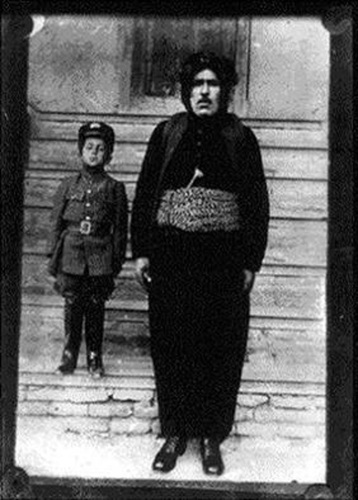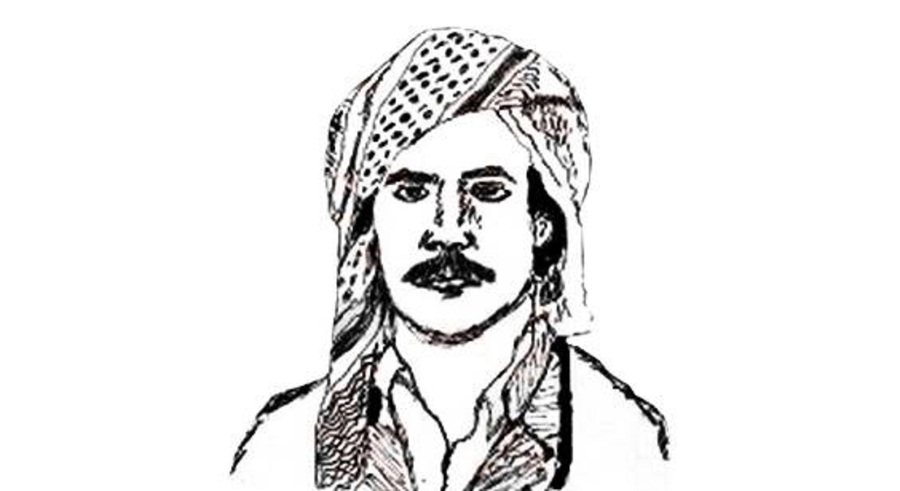Dr. Azad Mukri
Kurdish poetry in Mukeriyan in the past two centuries, has had a strong phase. The great change that Kurdish poetry formed within it and later spread all over the East part of Kurdistan was first created by the great and talented Kurdish poet, "Mirza Abdul Rahim Sablaghi", known as "Wafaei".
As we know, Mirza Abdul Rahim Wafaei died one hundred and thirty-seven years ago. That is, before this one and a half century, Wafaei was familiar with all the poetic experiences before himself and he particularly was aware of the hard and complex language of poets such as Mahvi and Nali. On the other hand, he knew the mysterious and mystical poems of Mullah Jaziri. Both of these groups of poets' literary experiences can be seen in Wafaei's Diwan.
He was also familiar with Persian poems with love or mystical topics. He knew poets such as Hafez, Sa'di, and Sanayi Ghaznavi. In addition to this, he also knew Arabic literature well. All these literary experiences led Wafaei to found Kurdish Ghazal and poetry in a way that we can call Sahl-e Momtane'. That is a form of poetry that looks easy to comprehend but it is actually difficult and complex.

The third man on the left: Wafaei
Wafaei helped romantic Kurdish poetry reach its peak and he also expanded the realm of mystical Kurdish poetry in his literary experience. Most of the time, he mixed these two kinds of literary genres to create a new perspective and worldview for people. Wafaei's personality, due to being related to the Nahri Sheikh’s family and their high political and religious rank in the society, was an influential character. Thus, his poetry was published in the Mukeriyan region, the East part of Kurdistan, and all over the four parts of Kurdistan very quickly. His poems were copied by many Kurdish artists, Mirzas and scholars to be spread among people even more. In addition to this, Wafaei taught many talented students as well one of whom was a very smart and talented poet called "Mullah Rasoul Sadeq" known as "Adib".
A century and a half ago, Rasoul Adib was born. His young adult ages are at the same time when Wafaei was getting older. Mullah Rasoul was Wafaei's student. He was taught at Wafaei's school and learned literature and poem writing there. So, he became a capable and powerful poet, writing many poems that can be considered as well as Wafaei's poems aesthetically.
As we know, Wafaei is known as the poet who developed the Baban school of poetry in Mukeriyan, and as a member of this poetic school, the names of such poets as Mesbah al Diwan of Adab, Hariq, and Taad can be seen as well. However, since Adib's poems were published late and in a disorganized way, this skilled poet's name is less known.
Mullah Rasoul's poems carry the heritage of Mukeriyan's poetry after Wafaei's poems. Unfortunately, due to his life conditions and all the changes that happened in his life, Mullah Rasoul Adib's poems were not published completely.

Mullah Rasoul Adib
The diwan published as the work of Mullah Rasoul Adib consists of only sixteen poems. Regarding the poetic tradition of the last letter of every verse, we can see that Giv Mukeriyani who collected Mullah Rasoul Adib's poems for the first time could not collect them all because Adib's nephew gave Giv Mukeriyani only a part of Adib's poems. According to a poetic tradition seen in classic poets' Diwans, the classic poets especially skillful poets like Adib who had a rich language and aesthetic talent for writing poems had used all the letters in their poems.
However, in the sixteen poems of Mullah Rasoul Adib, we can see these letters: three poems end in (A) letter; three other poems end in (R) letter. There are two poems ending in (M) and (N). Six other poems have the last letter of (H) and two poems end in (Y). It means, the poems of Adib that Giv Mukeriyani could find and publish had only six finishing letters and the rest of his works were not found by this researcher to publish them. These limited number of poems of Adib show his talent and skill in writing poems.
Mullah Rasoul Adib born in 1874 in Shawla village in Naghada began his education in Kurdish, Persian, and Arabic in Mosques. He reached a level that enabled him to become Wafaei's student in studying the Quran and literature, especially writing poems. Later, this poet begins his work as a teacher in various villages and towns to make a living. For example, he became a teacher in Paswe village of Piranshahr city teaching Qarani Agha Mamash's sons. After a while, he went to Sargizi village of Piranshahr teaching Abdul Rahman Agha's sons. However, he could tolerate neither of these lords and finally, he was insulted by them. He died when he was fifty-eight years old.

Qarani Agha Mamash and his son, Ali
The most famous poem of Mullah Rasoul Adib is a Ghazal called "Your eyes are drunk enough, do not make them get used to the pub". This long Ghazal is particularly the language of a skillful poet who knew all the details of classical Kurdish poetry's literary potential. Obviously, Mullah Rasoul had other Ghazals among those sixteen poems that have remained of his works that all are great examples of Ghazals after Wafaei's; some are equally strong as Wafaei's Ghazals. However, Mullah Rasoul was a busy poet. To him, poetry even when he was writing them, was very sacred and strong structure. He has several Hajviyeh (satire) poems that are full of the best poetic techniques. He also was very powerful in writing five poems. He wrote some fivesome poems of his own and he also had some fivesome poems based on other poet's works such as Taher Bag Jaff.
It is not possible for such a skillful poet in linguistics and aesthetics who had expressed his daily matters in the form of poetry to only have written sixteen poems. For example, Mullah Rasoul wrote a satire about a Mullah who had insulted him. He wrote a poem for that Mullah under the name of Xwazraw (wanted).
In this poem, we can see the linguistic ability of this poet in expressing his feelings:
Clarify for me who is responsible for this corruption
The issue is as good as a donkey's hoof, Hayas's hand
It is not me, not to know my opponent
His face is clear even behind a veil just like a fool
It is clear, he breaks down other's bones with his tail
That miserable is not Ibrahim, with such intelligence
My opponent is such a fool, either he is a secretary or a writer
He is so dumb that it is necessary to use a goad on him
In another poem, he wrote a satire for a smith who delayed his work.
He wrote a letter for Qarani Agha as a complaint for his reluctance to meet Mullah Rasoul. This poem shows Adib's linguistic skills in writing poems.
You claim to be a conscience man
To be the special chosen man by Borhan's Sheikh
You claim to be Mukri's superior, one of the noble Kurds
To be Mangur, Piran, Shino and Lajan's wiseman
You claim to be a humble man surrendering to God's will
To be a clean Sufi, away from lies and accusations
I do not deny my obedience to you, you are wise and skillful
These two are not in contrast, I am still waiting and wandering
When have you seen me committing a sin, falsehood, or a crime?
So why did you believe those who were my enemies
I served you for a long time, you know that
I am loyal and rightful, I am a well-mannered man
Your suspicion shows your lack of interest in Adib
It is obvious that "Adib" is the Lord's servant
These show that writing and talking in poetry was a daily task of Mullah Rasoul's but unfortunately, his works have gone missing and perhaps his relatives have the rest of his works.









